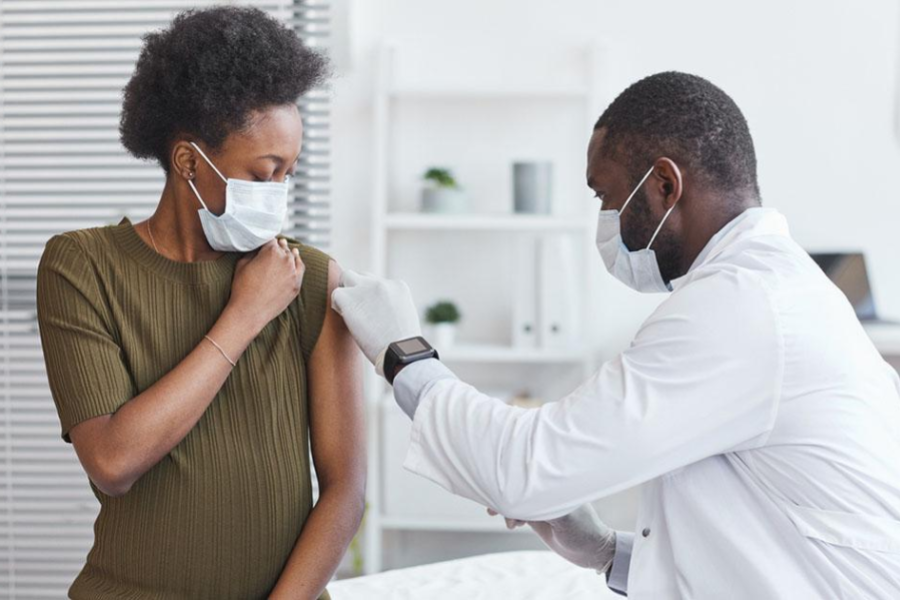
Although vaccination remains one of the most important public health strategies for preventing COVID and limiting its adverse outcomes, rates of vaccination are lower for Black people, suggesting that public health messaging and strategies have failed to adequately reach this community. A new study, published in Vaccine, from the University of Minnesota School of Public Health (SPH) examines these shortcomings and seeks to understand the process that leads them to a decision about vaccination.
Minnesota consistently ranks as one of the healthiest states in the nation with generally high vaccination rates, but it is also plagued by some of the starkest racial inequities across numerous health indicators. As of February 2023, 60.9% of Black Minnesotans had completed the primary COVID-19 vaccine series, compared to 64.7% of white people in the state. And while 21.5% of all Minnesotans had received booster shots, only 9.9% of Black Minnesotans had.
To understand how public health messages were falling short, researchers conducted interviews with women in Minnesota who self-identified as Black, including African Americans, immigrants from Africa and the Caribbean, and descendents of immigrants from Africa and the Caribbean. Participants were categorized into four groups: those who willingly got vaccinated, those who got vaccinated due to a mandate, those who delayed getting vaccinated and those who did not get vaccinated.
Participants who were highly motivated to get vaccinated described their trust in science and a desire to protect those around them, while those who delayed getting vaccinated expressed doubts about the vaccine’s safety. For all participants who expressed reservations about the vaccine, a range of factors and reasons were cited, including:
- Myths and misinformation. Many people cited myths around fertility, including the belief that the vaccine can damage the reproductive organs, cause sterility, or lead to birth defects or developmental delays. Some immigrants also reported hearing myths that originated in their home countries.
- Historical trauma and structural racism. African American women in particular were more likely to mention racist historic events, including the Tuskegee Syphilis Study and experiments on Henrietta Lacks, as reasons to distrust public health recommendations.
“A key component of our study was disaggregating the Black population, so we could better understand issues that affected decision-making that were relevant to specific segments of the community,” says SPH researcher and lead author Inari Mohammed. “Public health messages were received differently by people depending on their background and experiences, underscoring the importance of culturally-tailored public health communications when reaching out to particular communities.”
In addition to culturally-specific messaging, the researchers recommend several changes to public health campaigns in the future, including outreach that includes representatives from the community, broad
SPH Professor Rachel Widome and Assistant Professor Kelly Searle are co-authors on the study.

